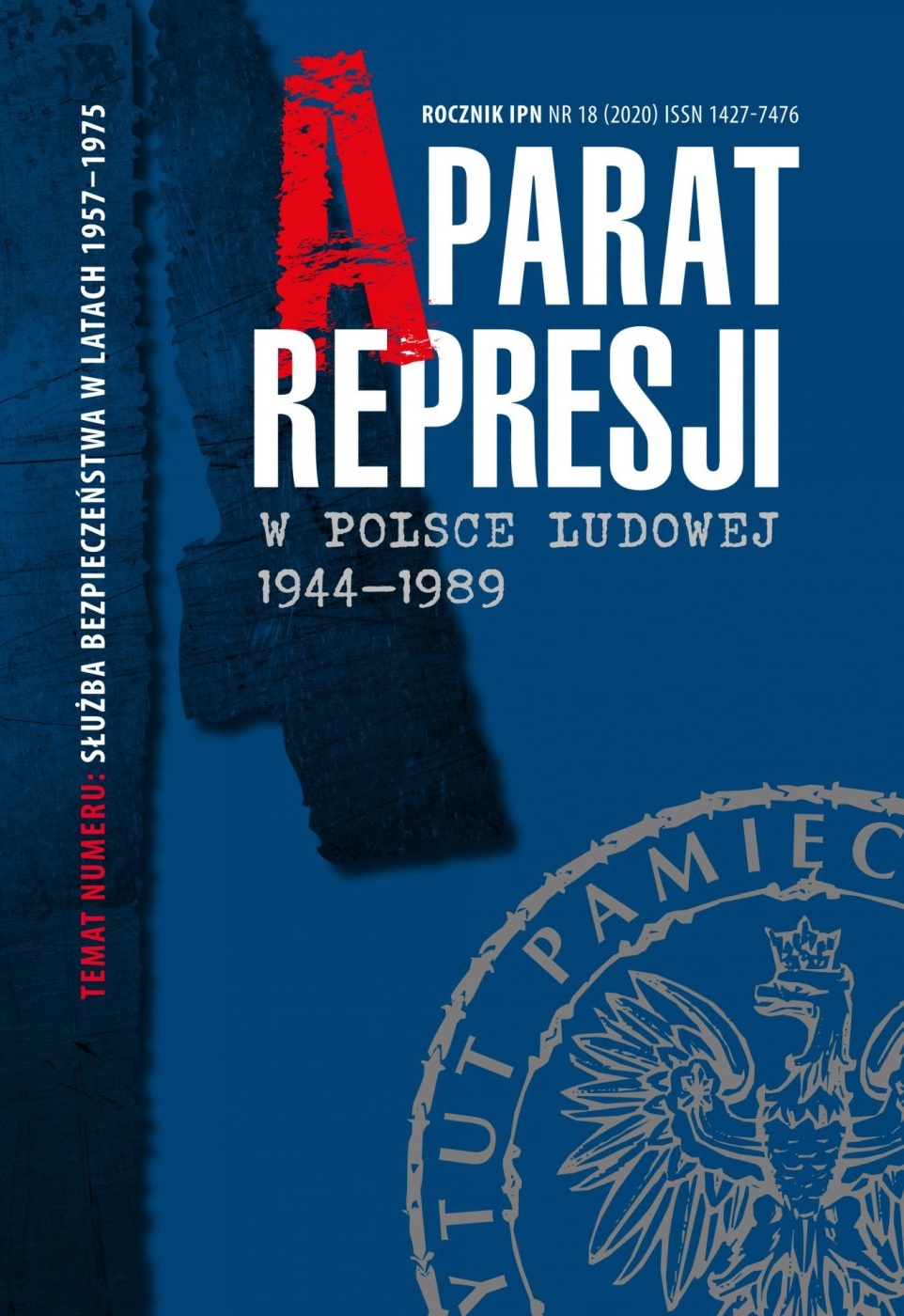Bulgaria’s Participation in the System of Joint Acquisition of Enemy Data (SOUD)
Aparat Represji w Polsce Ludowej 1944-1989, No. 18 (2020), pages: 447-456
Publication date: 2023-03-29
 https://doi.org/10.48261/ARPRL201816
https://doi.org/10.48261/ARPRL201816
Abstract
The System of Joint Acquisition of Enemy Data (SOUD) ushered in a new stage of the cooperation between Bulgaria, the GDR, Mongolia, Poland, Cuba, Vietnam, Hungary, Czechoslovakia, and the USSR in the sphere of intelligence and counterintelligence. Its ideology and organisation were designed by the Soviet Union – an initiative that started in 1975. The system was inaugurated and came into force in 1981. By the end of 1989, when it started falling apart, there was an intense and active exchange of intelligence data between the member countries. Over this period of time, Bulgaria collected information on 17,000 persons and Moscow on more than 260,000. This information was shared with the rest of the SOUD member countries.
Keywords
wywiad • kontrwywiad • SOUD • agent • tajne służby • bezpieczeństwo państwowe • KGB intelligence • counterintelligence • SOUD • agent • Secret Services • KGB • State Security
References
The text is based on documents preserved in the Archives of the Bulgarian Ministry of Foreign Affairs (Архив на Министерството на външните работи – AМВР)
License

This work is licensed under a Creative Commons Attribution-NonCommercial-NoDerivatives 4.0 International License.
 Język Polski
Język Polski
 English
English



 PDF
PDF
